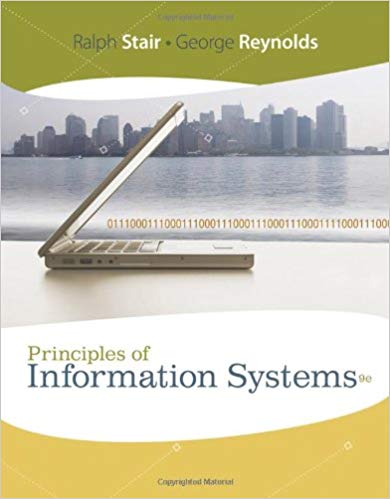Question
Chief Information Officer (CIO) might handle ethical decision-making using common ethical theories. Utilitarianism: This theory suggests that the most ethical choice is the one that
Chief Information Officer (CIO) might handle ethical decision-making using common ethical theories.
Utilitarianism: This theory suggests that the most ethical choice is the one that will produce the greatest good for the greatest number. A CIO using this approach might make decisions based on what will bring about the highest net benefits. Decisions are made to maximize overall good, considering benefits like efficiency gains against negatives like job losses.For example, when considering a new IT project, the CIO would weigh the potential benefits (like efficiency gains, cost savings, etc.) against potential negative impacts (such as job losses, privacy concerns, etc.).
Deontology: This theory is focused on duty, which means the most ethical choice is the one that follows set rules and principles, regardless of the outcome. Adherence to rules and principles is paramount, even if it means rejecting profitable opportunities that require bending them.A CIO following deontological ethics would adhere strictly to company policies, industry standards, and laws. For instance, if a lucrative opportunity arises that would involve bending some rules or policies, a deontologist CIO would reject it.
Virtue Ethics: This theory suggests that the most ethical choice is the one that aligns with certain ideal virtues like honesty, courage, compassion,etc. A CIO guided by virtue ethics would embody these virtues and make decisions that reflect them. For example, they might promote transparency in their team, foster an open and honest communication culture, and show compassion in handling team issues.
In real-world scenarios, a CIO might use a combination of these theories to guide their ethical decision-making. It's also important to understand that ethical considerations are highly contextual and can vary significantly depending on the specific circumstances and stakeholders involved. Therefore, continuous learning, reflection, and adaptation are key to ethical leadership in the role of a CIO.
-- The above post discusses how a Chief Information Officer (CIO) might handle ethical decision-making using one or more of the theories presented in theModule 1reading material, now please make some comments to the post.
Step by Step Solution
There are 3 Steps involved in it
Step: 1

Get Instant Access to Expert-Tailored Solutions
See step-by-step solutions with expert insights and AI powered tools for academic success
Step: 2

Step: 3

Ace Your Homework with AI
Get the answers you need in no time with our AI-driven, step-by-step assistance
Get Started


